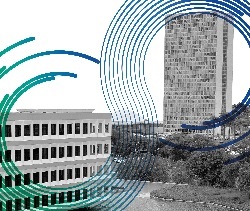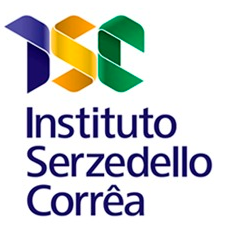Tribunal de Contas da União
SAI20 Online Technical Event on Climate Financing sets the stage for Senior Officials Meeting in Brasilia
On March 5, 2024, SAI Brazil (TCU) organized the second and last online technical gathering before Brasilia Senior Officials Meeting, in April. The event, held one week after the meeting on “Fight Against Hunger and Poverty”, was focused on Supreme Audit Institutions (SAIs) role in providing recommendations on Climate Finance to G20 countries, considering the importance of these institutions to improve government policies, programs, and projects against climate change.
Following the same participative methodology applied to the Technical Meeting on the Fight Against Hunger and Poverty, the Climate Finance Online Meeting was the opportunity for SAI20 - G20’s engagement group of SAIs – express key themes on how these institutions can better assess the proper use of public resources applied on initiatives aimed at tackling climate change. Over two sessions, 89 participants discussed, identified, and prioritized the main messages that should be outlined by SAIs to G20 governments.
The SAIs of Brazil, China, Egypt, France, Germany, India, Indonesia, Morocco, Portugal, Russia, South Africa, Spain, Turkey, United Arab Emirates as well as of Japan and Mexico (as observer SAIs) had the opportunity to debate how SAIs’ work can be fundamental to the coordinated response to climate change, especially regarding the evaluation of governmental action to boost the mobilization of finance towards sustainable development.
The event commenced with welcoming remarks from Raisa Ojala, the Director of International Cooperation at TCU, and with opening words from Junnius Marques Arifa, Deputy Secretary General of External Control at the Brazilian Federal Court of Accounts. In their initial statements, they both emphasized the urgency for strategic and effective measures to mitigate the impacts of climate change, outlining the responsibilities of SAIs in ensuring accountability and transparency in climate financing.
After this moment, and previously to the group discussion, Hugo Chudyson Freire, Head of the Specialized Audit Unit for Agriculture, Environment, and Development at TCU, made a short presentation to instigate the upcoming debate. During his speech, he stressed the importance of advancing a consistent knowledge-sharing agenda among SAIs to enhance their work in conducting compliance, financial, and performance audits specifically tailored to climate financing initiatives. Mr. Freire also prompted reflection on the proactive role SAIs can play in forums like the SAI20, going beyond their traditional functions and encouraging the exploration of different approaches to increase the impact of audits and evaluations.
With these ideas in mind, representatives from 17 different SAIs were able to develop in-depth conversations around two guiding questions: a. What are the main challenges and opportunities regarding Climate Financing in your national context? b. How can SAIs contribute to improving the Climate Financing Governance?
Under this framework, SAIs expressed the importance of advancing standardized methodology and reporting guidelines as well as the need to adopt multistakeholder approaches that recognize collaboration to enhance transparency and accountability among key actors in climate finance initiatives. Another focus of discussion was centered on how SAIs can proactively act to enhance the strategic consistency of government policies, providing governments with analytical tools to strengthen the allocation and monitoring of funds.
The discussions paved the way for a consensus-building session to address which key messages should be selected to represent SAIs’ shared vision for contributing to the effectiveness of climate financing initiatives. Once again, as experimented in the Fight Against Hunger and Poverty session, all SAIs had the chance to read and review the messages, subsequently voting on their priorities, ensuring a horizontal approach on the shortlisting process.
The key messages drafted, in general, advocate for the improvement of climate financing audits through the promotion of standardized methodologies and reporting guidelines; the need for clear, measurable goals and indicators to facilitate effective monitoring and evaluation of climate finance initiatives; the importance of addressing in audits eventual vague policy formulation; the importance of ensuring ingress to climate funds, especially regarding the current main difficulties faced by countries in their access to them; and the establishment of a comprehensive data framework for climate financing. Also, reinstating the importance of international cooperation, participants SAIs stressed the importance of collaborative efforts in sharing knowledge and experiences through INTOSAI working groups, as well as through their regional, and bilateral channels.
The Online Technical Meeting on Climate Finance, held on March 5, served as the last gathering for the upcoming SAI20 Senior Officials Meeting (SOM) to take place in Brasilia from April 15 to 17, 2024. Now, considering SAIs’ participation, TCU will prepare a “Report of the Outcome of Preparatory Online Meetings” to be launched in April containing a compilation of the key insights, prioritized themes, and recommendations for the preliminary draft Communiqué.
The SAI20 SOM will serve as an opportunity to prepare the group’s Communiqué, providing G20’s governments with concrete policy recommendations with the potential to generate benefits for SAIs within the scope of the “Fight against Hunger and Poverty” and “Climate Finance”.


